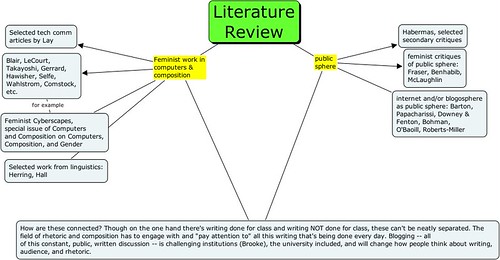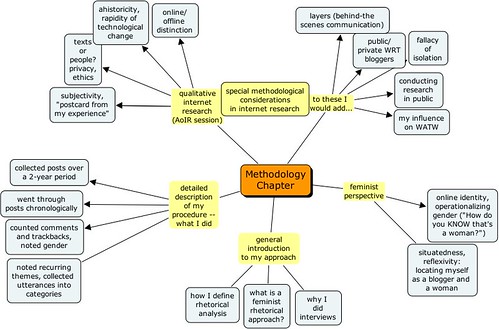Heh, ever since John Holbo used that phrase on The Valve, I've been thinking about how apt it is.
Kristine Blair and Pamela Takayoshi, in their introduction to Feminist Cyberscapes: Mapping Gendered Academic Spaces, describe mass media representations of women on the Internet. According to the famous MCI commercial, there is no gender on the Internet. But some other stories have told the cautionary tale of the woman who became addicted to online chat and neglected her husband and children, eventually running off with some man she met online:
The narratives offered in the commercial and the news magazine segment tell two different stories about technology -- the MCI commercial asserts a utopian vision in which we use technology to rise above our material conditions, while the story of female computer addiction suggests a rhetoric of excess in which the promised escape from our material existence positions us as victims. Together, these narratives suggest that a blanket acceptance or rejection of the Internet as an empowering site for women does not account for the complicated relationships between women and technology in their personal and professional lives. (1999, p. 2, emphasis mine)
They go on to cite stories in other mass media publications about the obsessive use by some of online pornography and online harassment (cyber-stalking). At every turn, it's a rhetoric of excess. Likewise with women and blogging. So-called "mommy bloggers" are obsessive, self-absorbed hyperparents. Same with those silly teenaged girls on LiveJournal. What makes them think anyone would actually want to read about their daily minutiae?
The last two days have been gray and overcast. Taken with my stress, this has resulted in listening to melancholy, wistful music (Crowded House) while doing work (dissertation and job applications) and counting the hours until my show comes on (Sunday night Simpsons/Family Guy, Monday night Prison Break).
Excess self. I'm definitely sluicing it off in this meandering post.
Dwight K. Schrute, a character on The Office, has a blog. I don't know if he's the David counterpart or the Gareth counterpart, as I've only watched a few minutes of the U.S. version of The Office. At any rate, it kind of amuses me that this character has a blog. Kind of like that blog Barbie used to have that she doesn't have anymore.
Know who else has a blog? Chris Matthews. It's called HARDBLOGGER. Oh my.




